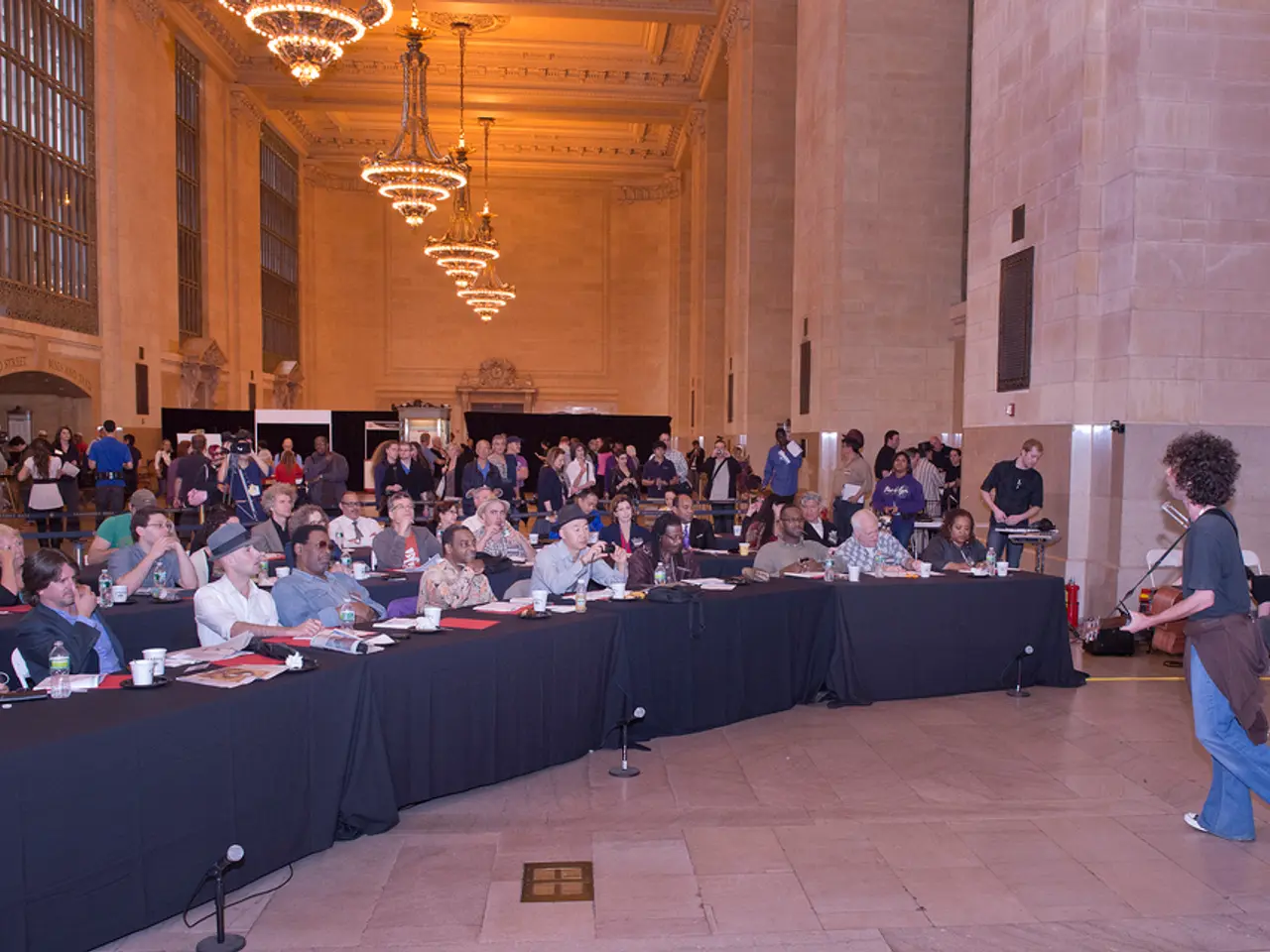Diving into the Sonic Cosmos of Max Richter: An Expedition through Audio and Feeling
In the realm of contemporary classical music, Max Richter stands as a beacon of innovation and emotion. Born in Germany in 1966 and raised in the UK, Richter's journey in music began at the University of Edinburgh, the Royal Academy of Music, and under the tutelage of Luciano Berio in Italy.
With a unique ability to convey deep emotion and thought through his compositions, Richter has become one of the most exciting and relevant composers of our time. For those who seek a deeper connection with music, exploring Richter's works is a journey worth taking.
One of Richter's most significant works is "The Blue Notebooks," released in 2004. This album, highly acclaimed as one of the best classical works of the century, is a protest against the Iraq War. The hauntingly beautiful combination of spoken word, piano, and string ensemble culminates in the iconic track "On the Nature of Daylight," widely used in films like Arrival, Shutter Island, and the series The Last of Us.
Another groundbreaking work by Richter is "Sleep," an 8.5-hour-long piece intended to be listened to while sleeping. Released in 2015, this immersive album, blending minimalism and ambient music for relaxation and rest, offers a unique experience for listeners. A one-hour adaptation of "Sleep," titled "From Sleep," provides a more accessible experience of this innovative piece.
In 2012, Richter reinterpreted Vivaldi's "The Four Seasons," resulting in the album "Recomposed by Max Richter: Vivaldi - The Four Seasons." This contemporary reinterpretation offers a fresh and invigorating listening experience, blending Vivaldi's original melodies with Richter's modern minimalist style. The album breathes new life into the familiar, causing divergent opinions in classical music circles but praised for its subtle, clever variations. It is also featured in Netflix’s The Chef’s Table opening titles.
Richter's talent is further showcased in his collaborations and soundtracks for films like "Waltz with Bashir," "Arrival," and TV shows like "The Leftovers." His music transcends the traditional boundaries of classical and electronic music, offering a blend of classical tradition and modern electronic elements that evoke deep emotional responses, enhancing the narrative of visual mediums.
Among other notable works by Richter are "Voices and Voices 2," minimalist neo-classical albums blending music with spoken word about fundamental human rights, and "Perihelion," a string work noted for its atmospheric and contemplative qualities.
In summary, "The Blue Notebooks," especially "On the Nature of Daylight," Sleep," and "Recomposed: The Four Seasons" are Max Richter's most notable and influential works, representing his impact on contemporary classical and cinematic music. For those seeking a deeper connection with music, exploring Richter's works is a journey worth taking.
Richter's works, such as "The Blue Notebooks" and "Sleep," are renowned for their unique blends of music and spoken word, offering readers an engaging exploration of his compositions within the realm of books. Beyond his album releases, Richter's gift for creating emotionally resonant music can be further appreciated in his contributions to film and television entertainment.






